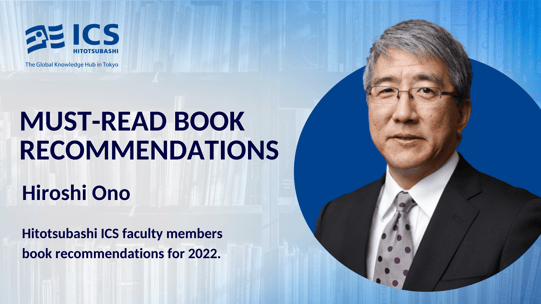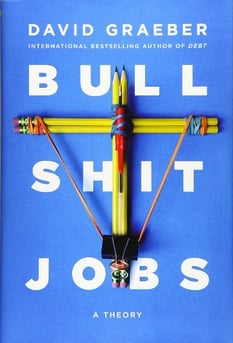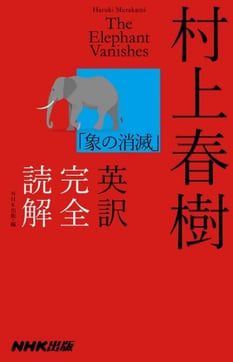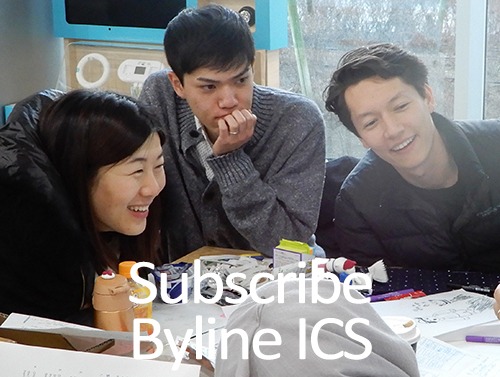These are the books Professor Hiroshi Ono recommends you reading in 2022!

1.Bullsh*t Jobs: A Theory | David Graeber
"The message of this book is as provocative as its title. A good job is one that is fulfilling, has a sense of purpose, and gives us some satisfaction that what we do matters and makes a contribution to the world. In reality, Graeber argues that some forty percent or more of us are stuck in jobs that offer none of these qualities, and has no social value. These are the so-called bullsh*t jobs which he defines as: “a form of paid employment that is so completely pointless, unnecessary, or pernicious that even the employee cannot justify its existence.” If the bullsh*t job disappeared, nobody would notice it.
The book outlines many defining features of bullsh*t jobs. Typical ones are jobs that were created for the sake of keeping people employed, oftentimes found in public sector jobs. Some jobs exist even though they can easily be automated, but haven’t been because the organization wants to keep as many people employed as possible. But bullsh*t jobs are not confined to the public sector. For example, some jobs, like corporate lawyers exist only because other people employ them. Companies hire corporate lawyers to protect themselves from other corporate lawyers. If all companies one day stopped hiring corporate lawyers, they would not be missed. I recommend this book for anyone considering a job change, anyone who wants to reassess their current job, or anyone who’s just looking for something funny and provocative to read." (Hiroshi)
2. Of Human Bondage |Somerset Maugham

"This classic novel has so many takeaways that I actually use parts of it in my HRM class. Most of us struggle with what we want to do versus what we have to do to make a living. Philip, the main character, wants to be an artist, but after many years of trying, he is made painfully aware of the limits of his talents and is forced to confront his mediocrity. He transitions from one job to another, and discovers that most jobs have no sense of purpose and are dreadfully boring, but most people are stuck because that is the only way they can afford to live. Forget about finding happiness and meaning through work, good grief!
If there are common themes in the book I recommended last time and this time – Women in the Dunes by Kobo Abe and Of Human Bondage – it would be entrapment and submission. In contrast to the Hollywood pop-culture ideal that our possibilities are limitless, humans are viewed as being trapped within the confines of their own capabilities and situations. Humans may start out with great ambitions and expectations, but eventually, they must submit to the reality of what has to be done to make a living, and what can be done within these constraints. Set in early 20th century England, Maugham’s observations and insights about human nature are still very much relevant today, which makes this a timeless classic." (Hiroshi)
3. The Elephant Vanishes |Haruki Murakami
Recently I experienced severe neck pains and visited an orthopedist. The doctor conducted a series of tests – X-ray, MRI, blood test, etc. It was an example of deductive reasoning and hypothesis testing. We can observe the outcome (= neck pain) but we don’t know what caused it, so we have to work backwards. We generate a list of possible explanations (= hypotheses), then eliminate them one by one until we get to (or at least get close to) the truth.
Like many of his novels, the short story Elephant Vanishes by Murakami has a brilliant premise. One day, an elephant and his zookeeper vanish without a trace from a zoo in the middle of a city. Here again, as baffling as it may be, we can observe the outcome (= elephant vanishes), but we don’t know how it happened. What follows is an exercise in hypothesis testing, Murakami-style, taking the readers through possible explanations, trying to unravel what could have led to this bizarre outcome. Right from the get-go, the reader is swept into the mystique of Murakami’s imaginative world. Enjoy!
* This is a short story and not a novel.
* Originally published in Japanese, English translation is available.
About Professor Hiroshi Ono:
Hiroshi Ono received his BE in mechanical engineering from Waseda University and his MA and Ph.D. in sociology from the University of Chicago. He was later awarded Docent (equivalent to a second doctoral degree) in economics from the Stockholm School of Economics. He writes and speaks extensively on the relationships among motivation, happiness, and productivity in the workplace. He has a special interest in the interplay between demographic change and labor market dynamics in Japan. His latest research focuses on enhancing the quality of work, integrating digital technology in the workplace, and increasing labor productivity.
Professor Ono joined ICS in 2014. His broad international experience includes professional and academic positions in the U.S., Sweden, and Japan. Professor Ono’s work has won recognition in business-oriented settings including Best International Paper Award from the Labor and Employment Relations Association and Top 20 Paper Award from the Rosabeth Moss Kanter Award for Excellence in Work-Family Research. Currently, he serves on the editorial board of the Journal of Quantitative Description: Digital Media, Palgrave Studies in Digital Inequalities, and Hitotsubashi Journal of Commerce and Management. He is also an Affiliated Professor of Sociology at Texas A&M University.
Professor Ono is a frequent contributor and commentator for Japanese and global news media, both print and broadcast. He is the author of Redistributing Happiness: How Social Policies Shape Life Satisfaction (with Kristen Schultz Lee, Praeger Publishing, 2016). His work has been published in the American Sociological Review, Asian Business & Management, Oxford Economic Papers, Social Forces, and Social Science Quarterly, among others.











